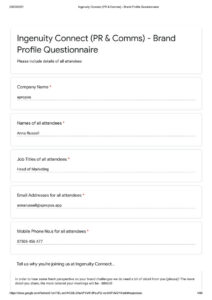Google Analytics is a powerful tool that allows website owners to track their website’s traffic, understand their audience, and improve their marketing efforts. However, it’s important to remember that Google Analytics collects personal data about your website’s visitors. As a website owner, you are responsible for protecting this data and ensuring you comply with all applicable data protection laws. One way to do this is to have a privacy policy that explains how you use Google Analytics and how you will protect your visitors’ data.
A privacy policy template for Google Analytics can help you create a privacy policy that complies with the law and protects your website’s visitors. There are many different privacy policy templates available online, so you can find one that fits your specific needs. Once you have found a template, you will need to customize it to include information about your website and how you use Google Analytics. Be sure to include the following information in your privacy policy:
What information does Google Analytics collect?
Google Analytics collects a variety of information about your website’s visitors, including their IP address, browser type, operating system, language, and the pages they visit. Google Analytics also collects information about how your visitors interact with your website, such as the time they spend on each page and the links they click. Google Analytics does not collect any personally identifiable information, such as names, addresses, or email addresses.
How does Google Analytics use this information?
Google Analytics uses the information it collects to generate reports that help you understand your website’s traffic, audience, and marketing efforts. For example, Google Analytics can tell you how many people visit your website each month, which pages are most popular, and where your visitors are coming from. This information can help you improve your website’s content and design, target your marketing efforts more effectively, and make better decisions about your business.
How Google Analytics Protects Your Data
Google Analytics takes a number of steps to protect your data, including:
- Encrypting data in transit and at rest.
- Restricting access to data to authorized personnel.
- Regularly scanning for security vulnerabilities.
- Providing clear and detailed documentation on data security practices.
By taking these steps, Google Analytics helps to ensure that your data is safe and secure.
What are your obligations as a website owner?
As a website owner, you are responsible for protecting your visitors’ data. This includes having a privacy policy that explains how you use Google Analytics and how you will protect your visitors’ data. You are also responsible for taking steps to secure your website and protect your visitors’ data from unauthorized access or disclosure.
By following these guidelines, you can help protect your website’s visitors and comply with all applicable data protection laws.
FAQs
Do I need a privacy policy if I use Google Analytics?
Yes, you are required to have a privacy policy if you use Google Analytics on your website. The privacy policy should explain how you use Google Analytics and how you will protect your visitors’ data.
What information should I include in my privacy policy?
Your privacy policy should include information about what data Google Analytics collects, how you use this data, and how you will protect your visitors’ data. You should also include information about your legal obligations as a website owner and the steps you are taking to comply with these obligations.
How can I create a privacy policy for Google Analytics?
There are many different privacy policy templates available online that you can use to create a privacy policy for Google Analytics. Once you have found a template, you will need to customize it to include information about your website and how you use Google Analytics. Be sure to include all of the required information, and make sure that your privacy policy is clear and easy to understand.
